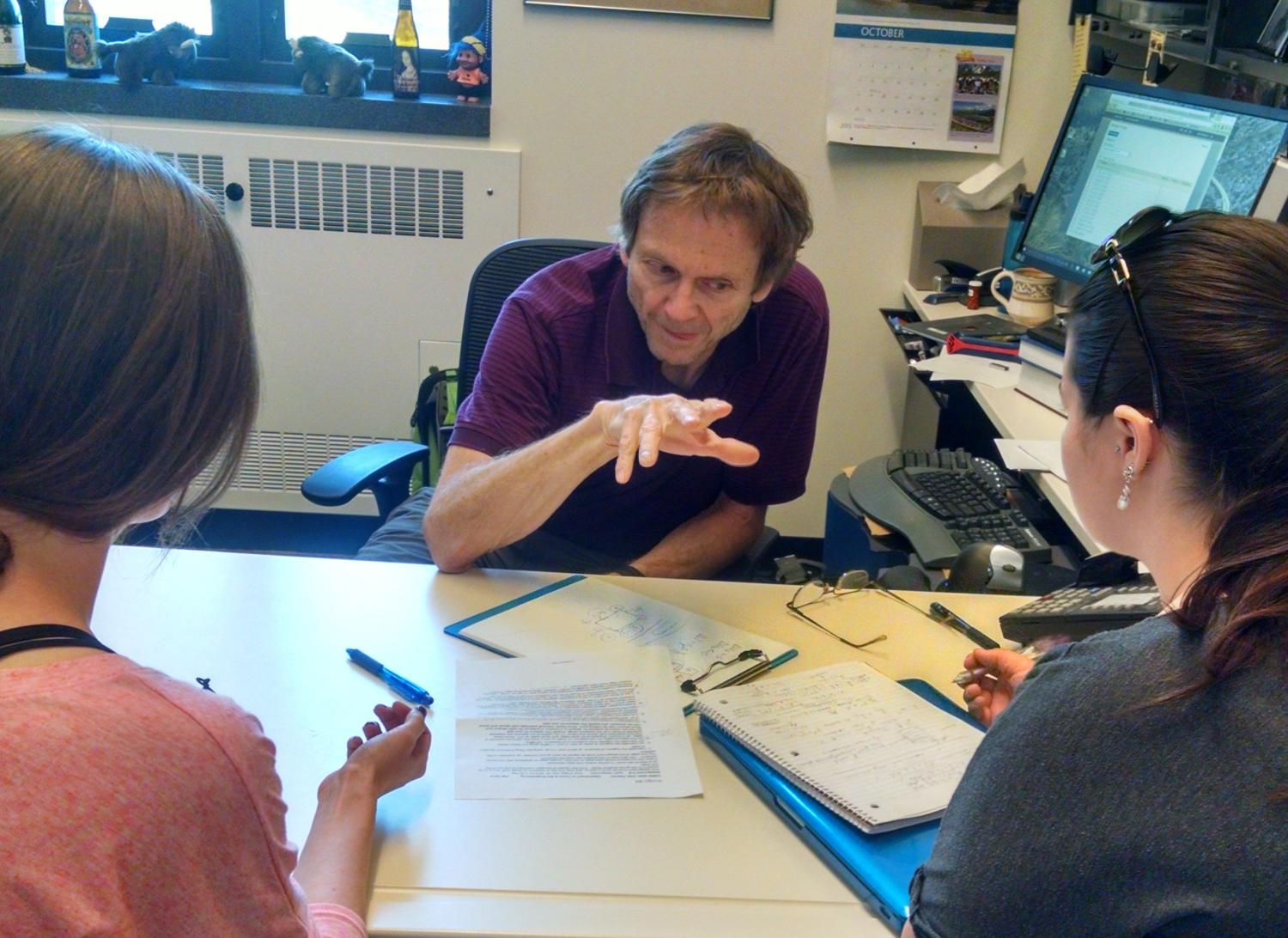Reengineering How We Teach

“OMG, that’s the LearnChemE school! I wouldn’t have passed Heat Transfer without your screencasts. You’re so lucky you get to take classes where the professors making the screencasts actually teach.”
This comment was told to Professor John Falconer by a junior CU chemical engineering student participating in a summer REU program. When the student had told her fellow REU participants she was from CU-Boulder, they began relating how CU’s screencasts had helped them.
Falconer is no stranger to these types of stories. The impetus behind CU’s screencast efforts, he, Janet deGrazia, and Will Medlin have spent years promoting activing learning techniques and creating thousands of screencasts (short video clips) and ConcepTests (conceptual in-class clicker questions). These materials are available to anyone on www.LearnChemE.com.
His educational work has earned Falconer national honors such as the 2015 Lewis Award for Chemical Engineering Education, the 2015 AIChE Himmelblau Award, and a feature in Chemical Engineering Education.
It is his own classroom experiences that have driven Falconer’s educational efforts.
“I rarely learned much during lectures,” he says. “One of my professors joked that he thought I would break my neck because it kept bobbing when I fell asleep in his class. Many lectures were just regurgitations of the book, which wasn’t helpful. I starting wondering what would be helpful.”
Indeed, studies show that lectures are often not an effective way for students to learn. Students learn an algorithm to solve a problem, without obtaining a functional understanding of the concepts involved. They then have difficulty applying the concepts to problems different from those they have seen. Many of these classes essentially train students to be stenographers.
In his classes, Falconer focuses on qualitative fundamentals and gauges student understanding using ConcepTests and student-held clickers. He leaves most example problems and derivations for screencasts. “Students can learn the mechanics of how to solve for x on their own using screencasts,” he says. “I want to spend valuable class time explaining the concepts behind these equations and physical phenomena.”
To date, the LearnChemE team has created over 1,300 screencasts with over 8 million views. During the last 30 days these videos have been viewed over 350,000 times. The LearnChemE site also has 95 interactive simulations, which allow students to change parameters and observe how a system responds.
“The students like the screencasts, which results in more time spent learning,” he says. “We do not include extraneous information; studies have shown that this actually decreases learning. The screencasts are short and concentrate on the critical concepts and problem solutions that we want students to learn.”
Outside of class, Falconer maintains a research program focused on inorganic membranes, heterogeneous catalysis, and applications of atomic and molecular layer deposition to catalysts and membranes. He has published more than 230 papers which have been cited more than 10,300 times (h-index = 57). He also has 19 patents.
When asked about his predictions on how teaching will evolve, Falconer touts online textbooks that incorporate simulations, questions that students answer online, and screencasts. These texts would contain only the most important ideas and no extraneous information.
For now, Falconer is just trying to better engage and teach his students. He relates, “It’s not always easy to find ways to get students excited. I once had feedback at the end of the semester that said, ‘He made thermodynamics fun.’ That shows we are headed in the right direction.”

